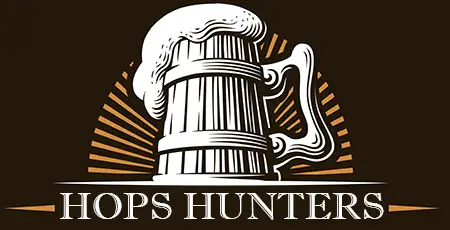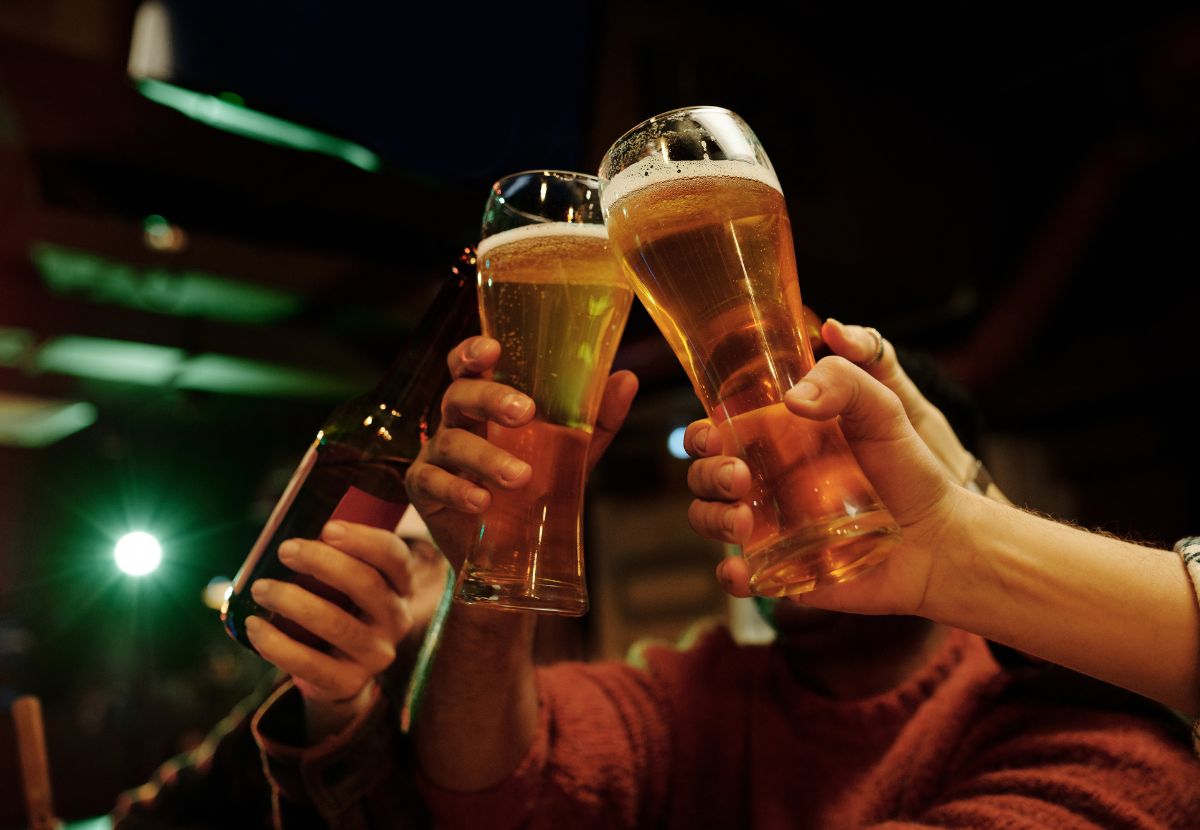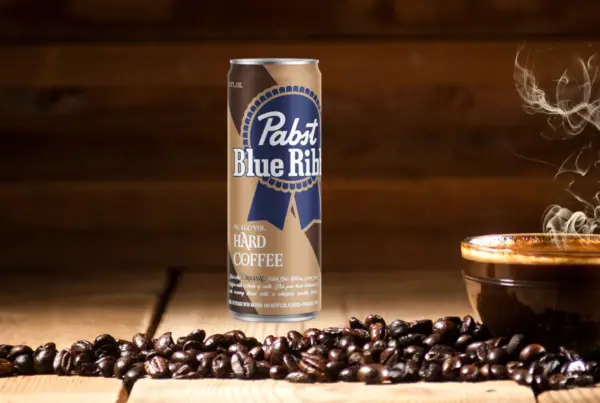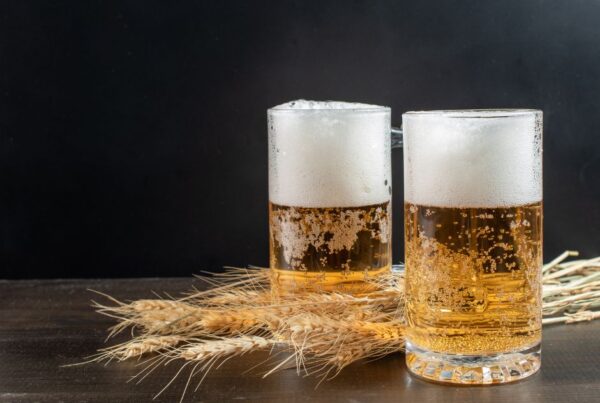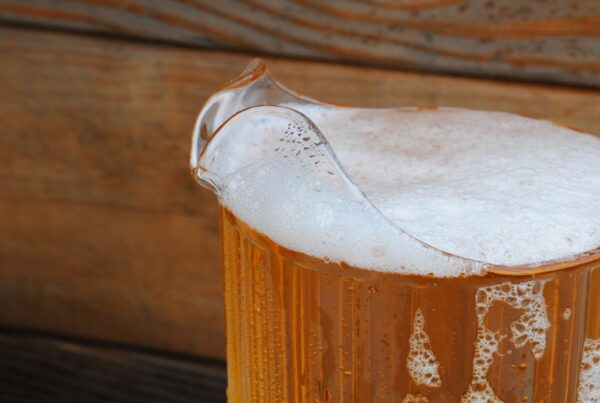How to Make Bitter Beer Taste Better
I am text block. Click edit button to change this text. Lorem ipsum dolor s
Picture it: You’ve just cracked open a frosty bottle from that new local brewery downtown. The one your neighbor raves about, the one with the hand-drawn labels and intriguing beer names like “Pucker Punch” and “Hoptimus Prime.”
You expertly pour it into your favorite beer glass, and take that first anticipatory swig…
The first sip hits, and BAM!—a mule kick of hops—way too bitter for your taste. You reel back, making the sort of face reserved only for someone who has just unsuspectingly drank bitter beer.
What now?
Stop! Don’t pour it down the drain. (Not yet, anyway—that’s a last resort.)
Before you turn your back on a bitter brew, here are a few battle-tested strategies you can try to make that “too bitter” beer better.
1. Serve it “Bitter Cold”
When you’re faced with a brew that’s too bitter for your tastes, lowering the beer’s temperature can be an ace up your sleeve. It’s not masking flavors exactly, just kind of turning down the intensity. The colder you chill the beer, the more muted the bitterness becomes, to a point.
Pro Tip: Remember, chilling beer doesn’t just reduce its bitterness—it can also suppress other flavors, which is why beer connoisseurs don’t typically recommend serving beer “ice-cold.” Experiment with temperature a bit and find a sweet spot (or bittersweet spot?) that works for you.
2. Bitter Beer: Will it Blend?
While it might sound “unorthodox” at first, if you’ve ever tried a black and tan, you’ve already drank a blended beer (a Guinness beer and a pale ale).
Just as mixing different varieties of coffee beans can create a balanced “blend,” blending two different beers can be a surprisingly simple way to dial back an overly bitter beer.
How do you do it? No need to get the blender out—just mix a “too bitter” beer with a “not so bitter” one like a Blue Moon, a Bud Light, a Miller Lite, etc. This can create a “new” beer with a whole new flavor profile that’s more balanced and easier on the palate.
Pro Tip: As a rule of thumb, start out with a half-and-half blend, and adjust it to your personal taste.
3. Make Beer Cocktails
Before you and your friends give that bitter beer the old heave-ho, try playing bartender for a minute. No, that doesn’t mean forgetting their change and pretending you’re out of the good Scotch—it means: experiment!
Here are a few things you can try:
- Add a splash (or two) of orange or lime juice
- Sweeten the deal with some sugar syrup or a sweet liqueur
- Add a shot of a complementary spirit, i.e.:
- Whiskey/bourbon
- A sweet dark rum
- A flavored vodka (that doesn’t have too strong of a “vodka flavor”)
- Even something like a gin with citrusy/botanical notes.
These are just a few suggestions. Put on your mixologist hat (bonus points if it’s a literal hat) and show that bitter beer who’s boss.
4. Try Pairing Bitter Beer with Food (Seriously)
If all else has failed so far, remember: just like wine and food, beer and food also make a great pair. For bitter beers, the simple trick is to partner them with foods that can either tame their bitterness, or offer a rich “counterpoint.”
Pro Tip: Many people make the mistake of trying to temper bitter-tasting things with sweet things, but this actually enhances our perception of bitter flavors. Instead, look for salty, fatty, or rich foods to balance the bitterness. Extra sharp cheeses, grilled meats, spicy stews, charcuterie, and so on can all provide a great counterbalance—turning a beer that’s “too bitter” to drink on its own, into a harmonious part of a meal.
5. Develop Your Bitter Palate
If you’ve tried all the above without success, don’t fret. Many a beer connoisseur will tell you they started out with an entirely different palate, and adjusted to enjoying new flavor profiles over time.
I know—it sounds like a tall order. But if you’re feeling brave—or just incredibly stubborn—start with milder beers and gradually work your way up the bitter ladder. There’s a good chance you’ll ultimately find yourself appreciating—or even craving—the “bite” of a good, high IBU beer.
6. Explore Different Styles of Beer
Beer is meant to be enjoyed, not endured. There are so many styles of beer out there to explore, it doesn’t make sense to get hung up on trying to force yourself to enjoy a bitter beer you just can’t seem to tolerate.
You might not be as much of a hop-forward IPA enthusiast as your buddies, but you might be a true fan of the dark, roasted malt flavor in a good stout. Or maybe you’d appreciate the fruity and spicy notes in Belgian beer styles… or the refreshingly tart kick of a Gose (one of many German beer styles).
Ready to expand your beer horizons? Great! Check out Hops Hunters’ beer reviews and beer profiles for more expert insights and recommendations.it amet, consectetur adipiscing elit. Ut elit tellus, luctus nec ullamcorper mattis, pulvinar dapibus leo.
